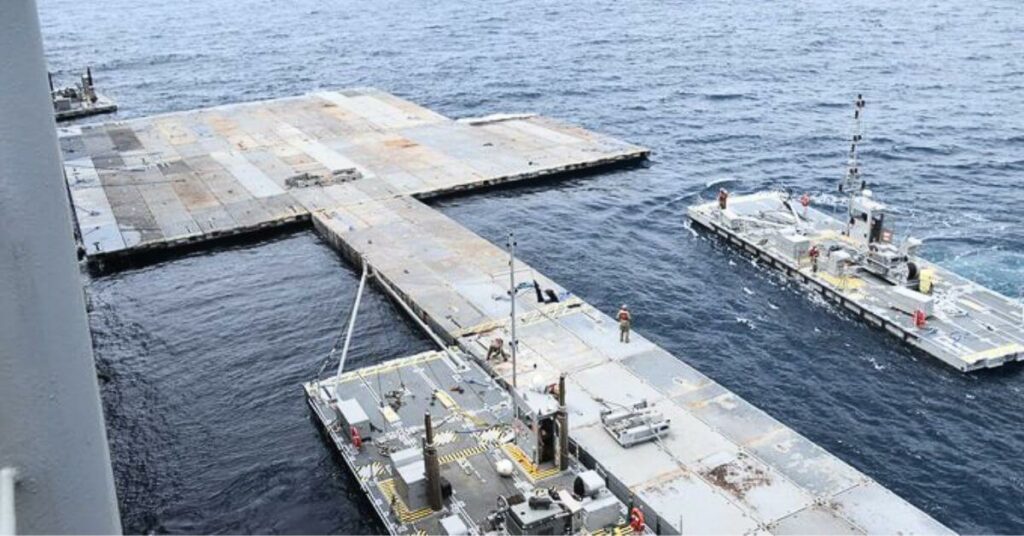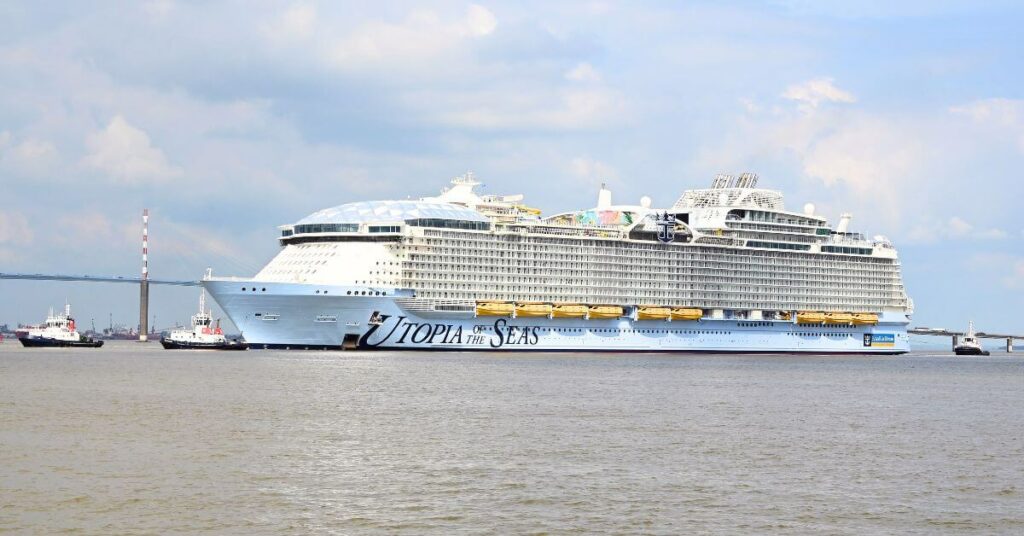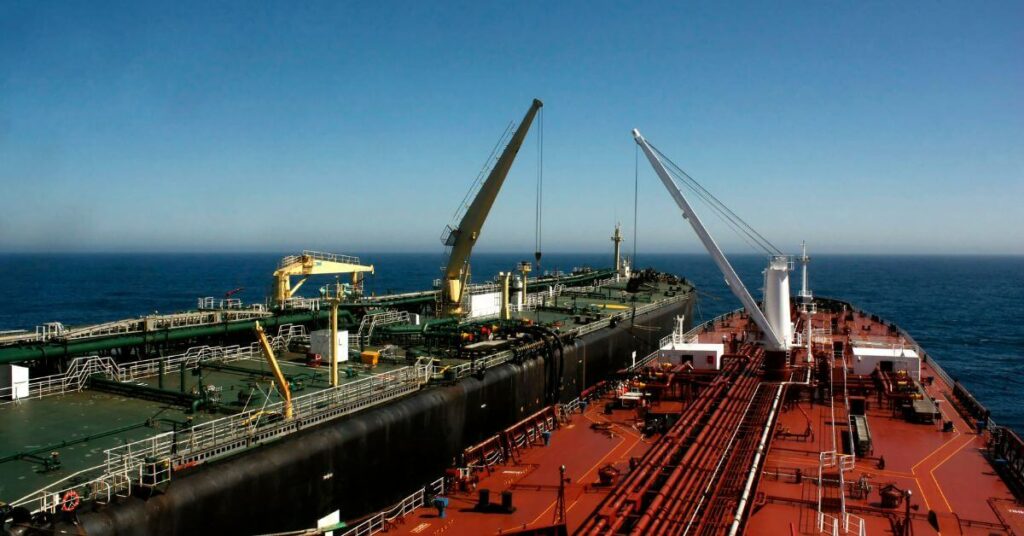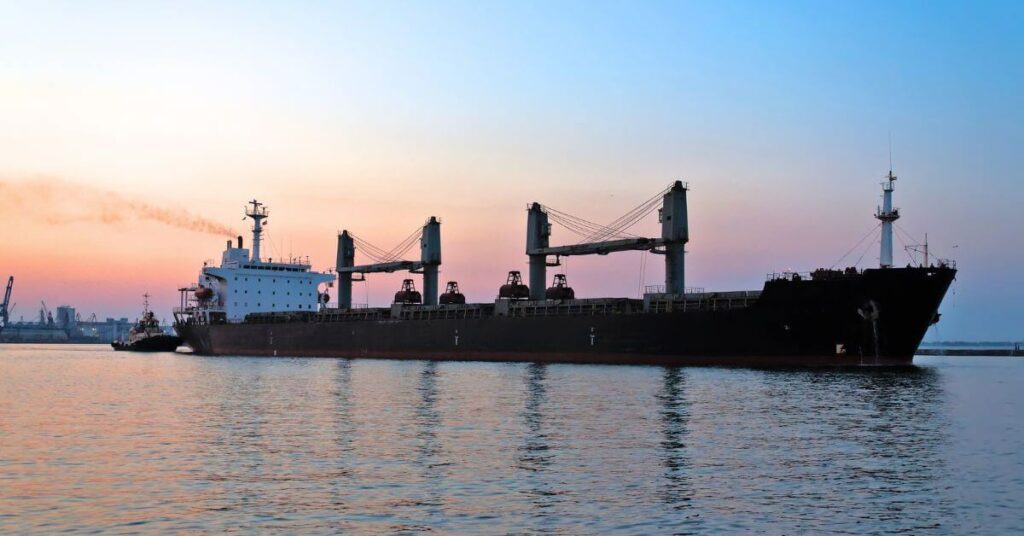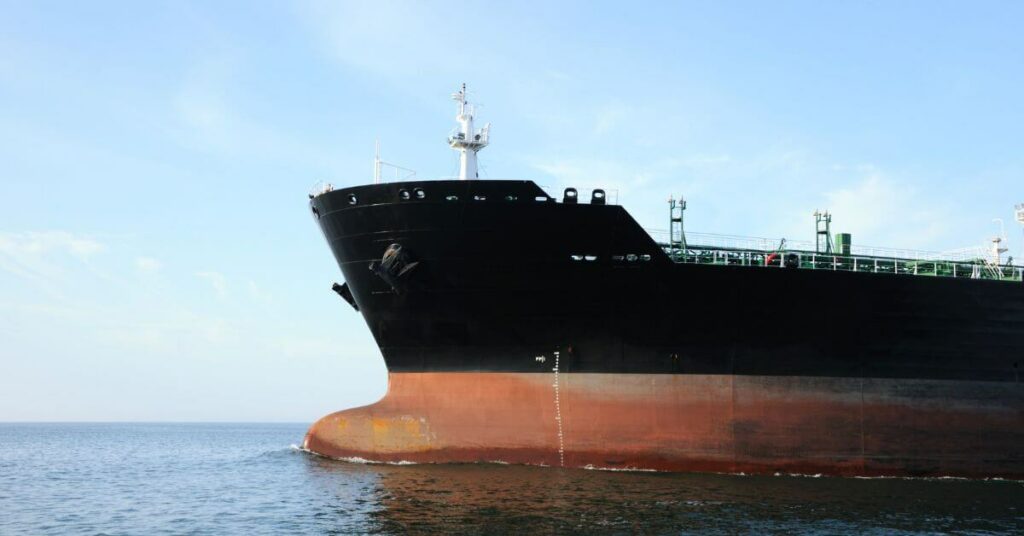Coral Reefs Face Risk from Massive Algal Bloom After Ship Rubymar Sank In the Red Sea
When the Belize-registered Rubymar sank in the Red Sea following a brutal Houthi attack, the vessel went down with 21,000 tons of fertilisers that might trigger massive algal blooms that can build some dead zones for marine life and starve the coral reefs of light.

Along with a slick of leaked fuel, the ammonium phosphate sulfate fertilisers can deliver a severe pulse of nutrients into the waters harbouring marine mammals, rare corals, and reef fish, resulting in a spread of foamy scum on the water.
Per a maritime alarm raised to vessels in that area, the UK-owned Rubymar, the first-ever vessel to be lost since the Houthis started to target commercial vessels in November, went down over the weekend in a narrow zone between Eritrea and Yemen at about 100 meters of depth, along the continental slope. The comparatively shallow waters close to the coasts are abounding with corals.
Ali Al-Sawalmih, the director of the Marine Science Station associated with the University of Jordan, explained that it’s an enormous quantity of fertiliser and a terrible site. Adapted to warm water conditions, researchers have hoped that the Red Sea could serve as a refuge for corals as climate change further warms the world’s oceans, making the potential impact more significant.
Shipping industry sources mentioned that the conflict further problematises scheduled cleanups and may also dissuade salvage vessels from stepping into the high-risk waters. So far, it is not evident which company insured the Rubymar and would pay for remediation.
It is also not clear how the fertilisers were stored or how secure they would be from reaching the water. Damages have yet to be reported. However, according to Sawalmih, the ship’s sinking could be the direst ecological catastrophe the area has experienced in over a decade.
An overload of fertilisers can stimulate the excess growth of algae, using up such large quantities of oxygen that even regular marine life can’t survive. This builds dead zones where nothing can survive. Fertilisers often contain traces of toxic chemicals that are poisonous to marine life. The fishing communities that lie along the Red Sea coast in Taiz and Hodeidah will be affected by the contamination, mentioned Mohammed al-Basha with the U.S. analytics firm Navanti Group.
This can also lead to diminished catches and damage to livelihoods. The Iran-backed Houthis have pledged to continue sinking vessels in the waters of the Red Sea and Bab el Mandab chokepoint via which millions of barrels of oil, as well as thousands of tons of industrial items, sail every day. The Houthis, who are in control of the north of Yemen as well as other large centres, state that their campaign is a show of solidarity with the Palestinians in Gaza.
The Coral Ecosystem
The sinking of the Rubymar is one of the few occasions in recent years that a vessel has sunk with large amounts of fertiliser, and it may be the sole sinking in a fragile coral ecosystem. Earlier in the year, a German-flagged ship loaded with 1,000 tons of nitrogen fertiliser collided with a bridge and sunk along the Danube border between Croatia and Serbia.
Serbian authorities stated that the fertiliser was moved downstream and that additional testing revealed no increased pollution.
The Red Sea is typically a nutrient-poor body of water, with little artificial inputs from aquaculture operations and urban wastewater discharge.
Derek Manzello, who coordinates the Coral Reef Watch of the U.S. National Oceanic and Atmospheric Administration, stated that if a large amount of fertiliser is poured into the water, you’ll probably get some significant algal blooms.
Studies suggest that corals are specially adapted to warm water conditions, so they may be more resilient to rising ocean temperatures. They need greater temperature anomalies to bleach, a procedure through which corals expel colourful algae living in their tissues under extreme heat stress.
Scientists, however, have also observed that the Red Sea reefs lost coral cover rapidly between 2019 and last year following very high ocean temperatures. Corals exposed to many nutrients are susceptible to heat stress and bleaching.
Blooms of miniature algae in the water column can also generate a murky soup, preventing sunshine from reaching the reefs.
Manzello described the sinking of Rubymar and the possibility of a fertiliser discharge as adding an insult to injury.
Reference: Reuters
Disclaimer :
The information contained in this website is for general information purposes only. While we endeavour to keep the information up to date and correct, we make no representations or warranties of any kind, express or implied, about the completeness, accuracy, reliability, suitability or availability with respect to the website or the information, products, services, or related graphics contained on the website for any purpose. Any reliance you place on such information is therefore strictly at your own risk.
In no event will we be liable for any loss or damage including without limitation, indirect or consequential loss or damage, or any loss or damage whatsoever arising from loss of data or profits arising out of, or in connection with, the use of this website.
Disclaimer :
The information contained in this website is for general information purposes only. While we endeavour to keep the information up to date and correct, we make no representations or warranties of any kind, express or implied, about the completeness, accuracy, reliability, suitability or availability with respect to the website or the information, products, services, or related graphics contained on the website for any purpose. Any reliance you place on such information is therefore strictly at your own risk.
In no event will we be liable for any loss or damage including without limitation, indirect or consequential loss or damage, or any loss or damage whatsoever arising from loss of data or profits arising out of, or in connection with, the use of this website.
About Author
Marine Insight News Network is a premier source for up-to-date, comprehensive, and insightful coverage of the maritime industry. Dedicated to offering the latest news, trends, and analyses in shipping, marine technology, regulations, and global maritime affairs, Marine Insight News Network prides itself on delivering accurate, engaging, and relevant information.

About Author
Marine Insight News Network is a premier source for up-to-date, comprehensive, and insightful coverage of the maritime industry. Dedicated to offering the latest news, trends, and analyses in shipping, marine technology, regulations, and global maritime affairs, Marine Insight News Network prides itself on delivering accurate, engaging, and relevant information.
Do you have info to share with us ? Suggest a correction
Latest Shipping News Articles You Would Like:
Daily Maritime News, Straight To Your Inbox
Sign Up To Get Daily Newsletters
Join over 60k+ people who read our daily newsletters
By subscribing, you agree to our Privacy Policy and may receive occasional deal communications; you can unsubscribe anytime.

